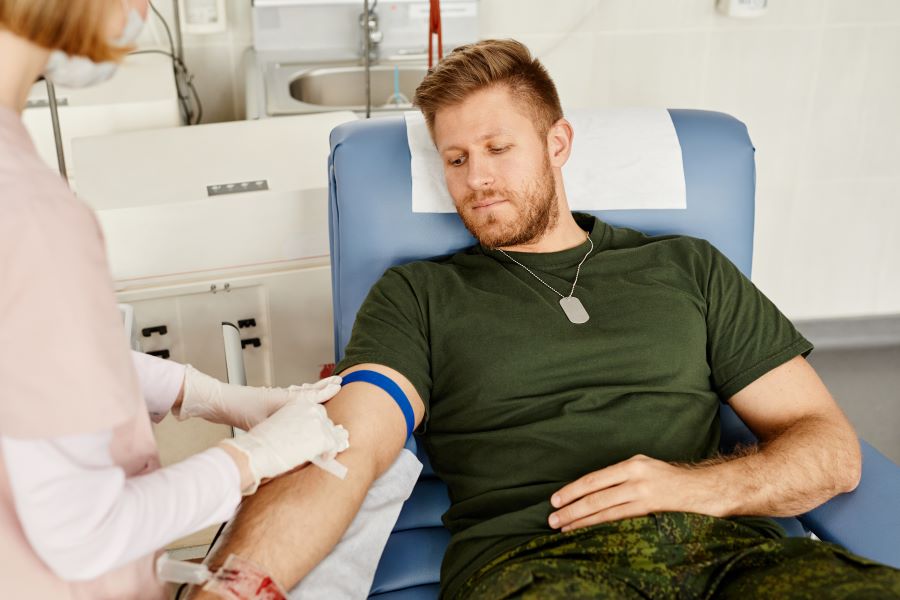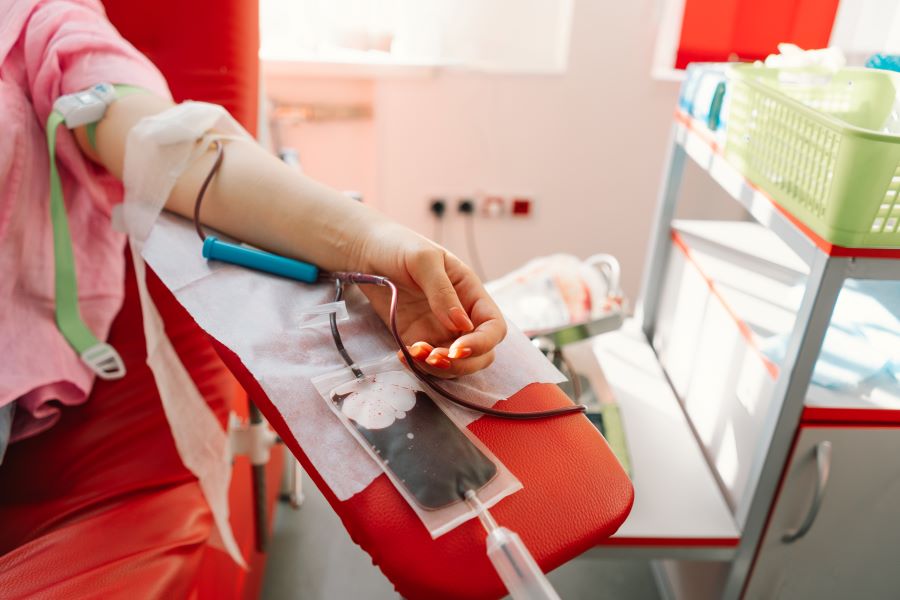Can You Donate Blood if You Smoke?

Smokers can indeed donate blood. Although this is true, the concern about smoking affecting blood quality is a very common one. Blood donation offers extreme help to the individual who needs a blood transfusion. It is a primary medical necessity, and there is a constant need for donors all around the globe.
The main goal of all blood donation organisations is to ensure that all donors are healthy and safe regardless of their smoking habits. However, there are multiple stigmas attached to blood donation. One of them is whether smokers can donate. Keep reading to learn how to donate safely as a smoker and whether it impacts blood donation.

Table of Contents

Can Smokers Donate Blood?

Yes, smokers can donate blood. An individual’s lifestyle choices, including smoking, do not disqualify him/her from donating blood. However, there are specific eligibility criteria, such as health conditions, lifestyle, and medication history, that you must know before donating blood.
What if You Inhale Cannabis?
Like cigarettes, smoking cannabis does not determine your eligibility for blood donation. As per American Red Cross, substances like cigarettes, alcohol, cannabis, etc., do not rule out a person from giving blood.
However, if the doses of cannabis debilitate the individual’s memory or power of comprehension, they will be disbarred from donating. Nonetheless, these health effects do not affect the quality of the donated blood.
What if You Inhale Nicotine?
There are no such rules for smokers while donating blood. However, both smoking and vaping before the appointment will increase your blood pressure, and the clinic might turn you away in such cases. In addition, smoking after donating blood will lead to dizziness.
Also, consuming either tobacco cigarettes or electronic cigarettes contain chemicals like acetaldehyde, propylene glycol, etc., that affect the blood.
What Should Smokers Do Before Blood Donation?
You should follow a proper diet to prevent adverse health effects if you are donating blood. Here are a few things you should pay attention to before donating blood:
Things Smokers Should Avoid Before Blood Donation
Things that smokers should avoid before donating blood are as follows:
In addition, many other foods and beverages, like those rich in fat, will harm your blood. Moreover, you should avoid aspirin for at least 48 hours and keep away from any vigorous exercises.
What Should Smokers Do After Blood Donation?

A potential donor must look after these aspects after donating blood:
In addition to this, riboflavin-rich foods like spinach and mushrooms also help in producing red blood cells. Besides, you should eat food rich in protein content.
Individuals can donate blood if they smoke. However, it is recommended that they wait for at least 1 hour after donating blood before smoking. People who smoke just after donating blood may experience light-headedness and can meet serious injuries.
Conditions Caused by Smoking that Could Disqualify You
Even though smoking doesn’t disqualify one from donating blood, it can lead to certain diseases that make one ineligible for donating blood, like:
1. Cancer
Individuals suffering from diseases like leukaemia or lymphoma cannot donate unless they have received complete treatment.
2. High blood pressure
People with high blood pressure are not eligible to donate blood.
3. Heart or lung diseases
Individuals with any heart or lung disease won’t be able to donate blood. Moreover, a person who has experienced a heart attack or stroke needs to wait for six months before donating.
Smokers can donate anywhere globally; no such obligation is made only for them. One can give blood even if they use a nicotine replacement like a nicotine patch. On the whole, donating blood is the noblest way to save a life. Smoking cigarettes and cannabis or consuming alcohol does not disqualify an individual from donating blood.
Side Effects of Smokers Donating Blood
Though smoking is not an absolute barrier to blood donation, the following side effects of smoking call for a general examination of one’s health and the views of medical experts:
1. Higher Risk of Health Problems
The blood pressure and heartbeat rate can be increased because smokers tend to have these signs related to cardiovascular health that will affect their blood donation process.
2. Slower Healing Process
Following blood or organ donation, smokers might take a longer time to heal due to compromised lungs as well as low levels of oxygen, which may hinder the healing process.
3. Poor Blood Quality
Toxin deposition in the body from tobacco smoking could interfere with the quality of blood, which could influence the safety and efficacy of such transfusions among recipients.
4. Possibility for Negative Effects
After giving out their own blood, smokers may suffer from dizziness, light-headedness, or fainting spells as nicotine and other substances tend to affect the flow of blood, thereby interfering with the overall condition.
5. Increased Sensitivity Towards Donation Effects
Smoking individuals’ vascular functions are impaired; hence, they are more likely to bruise easily or feel more pain at injection sites because they are prone to side effects resulting from a blood donation.
What is the Impact of Smoking on Blood Donation?
Here are a few different ways in which smoking can impact blood donation and affect both the donor and the recipient:
- Smoking might cause raised blood pressure and rapid heart rate, which can complicate the process of giving blood and affect the donor's cardiovascular health during and after donation.
- The presence of carbon monoxide, among other toxins, in smokers reduces their oxygen-carrying capacity. This is detrimental to their general well-being and recovery post-donation exercise.
- Smokers who donate blood may have more remarkable side effects, such as feeling lightheaded, fainting, or taking a long period to recover due to impaired lung function and overall health problems.
- Toxins present in smoking influence the quality of blood in terms of its safety during transfusion; hence, it may not be useful for recipients.
In conclusion, it should be noted that smokers may give blood since smoking does not single out people for elimination from the pool of potential blood donors. Even though there are concerns over smoking’s effect on blood quality, set protocols ensure that all donors, including smokers, meet critical health standards.
By addressing issues associated with smoking and promoting general well-being, potential donors can help maintain the much-needed life-saving supplies in numerous medical emergencies.
Protect What Matters - Explore Other Insurance Options














